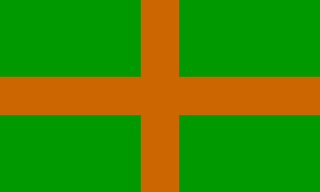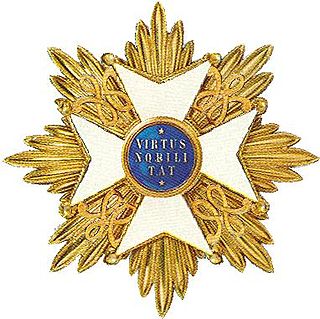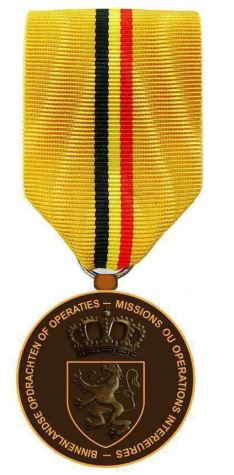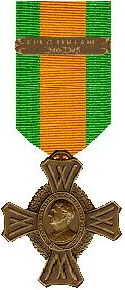
The Netherlands armed forces are the military forces of the Kingdom of the Netherlands. The armed forces consist of four service branches: the Royal Netherlands Navy, the Royal Netherlands Army, the Royal Netherlands Air Force and the Royal Netherlands Marechaussee. The service branches are supplemented by various joint support organizations. In addition, local conscript forces exist on the Dutch Caribbean islands of Aruba and Curaçao. These operate under the auspices of the Royal Netherlands Navy and the Netherlands Marine Corps. The armed forces are part of the Ministry of Defence.

The International Four Day Marches Nijmegen is the largest multiple-day marching event in the world, with tens of thousands of participants. It is organised every year in Nijmegen, Netherlands in mid-July as a means of promoting sport and exercise. Participants walk 30 km (19 mi), 40 km (25 mi) or 50 km (31 mi) daily, depending on their age and gender and, on completion, receive a royally approved medal (Vierdaagsekruis). The participants are mostly civilians, with a few thousand military participants as well. Military participants' distance is 40 km, in uniform, carrying at least 10 kg (22 lb) marching weight for men aged 18–49; for women, the weight is optional.

The Military William Order, or often named Military Order of William, is the oldest and highest honour of the Kingdom of the Netherlands. It is named after St. William of Gellone (755–814), the first Prince of Orange. Its motto is Voor Moed, Beleid en Trouw. The chivalric order was established on 30 April 1815 by King William I and was presented for feats of excellent bravery on the battlefield and as a meritorious decoration to senior military officers. Comparable with the French Légion d’Honneur but far less often awarded, it is open to everyone regardless of rank or nobility—not only to Dutch military, but also to foreigners. To date, membership in the Order is extremely rarely awarded, and only for exceptional bravery in battle.

Princess Margarita of Bourbon-Parma, Countess of Colorno, is the eldest daughter of Princess Irene of the Netherlands and Carlos Hugo, Duke of Parma. She is a member of the House of Bourbon-Parma as well an extended member of the Dutch royal family. Per a 1996 royal decree issued by Queen Beatrix, she is entitled to the style and title Her Royal HighnessPrincess Margarita de Bourbon de Parme in The Netherlands as a member of the extended royal family.

In the Dutch honours system, most orders are the responsibility of ministers of the Netherlands Government. The house orders, however, are awarded at the discretion of the Dutch monarch alone.

De Ruyter Medal was created by royal decree no. 1 on 23 March 1907 by Queen Wilhelmina of the Netherlands, on the three hundredth birthday of Admiral Michiel de Ruyter
The Medal of the Red Cross is a royal decoration of the Kingdom of the Netherlands to be awarded for dedication and important services to the Netherlands Red Cross.

The avondvierdaagse is an annual Dutch and Surinamese walking event where the participants walk every evening for four days.
The Star for Loyalty and Merit was a civilian award established on 1 January 1894 by Governor-General Carel Herman Aart van der Wijck of the Dutch East Indies. The star replaced the old Medal for Civil Merit, which had limited prestige and status according to the Netherlands government. The star was awarded in gold to "significant and meritorious" natives, and in silver to village chiefs and leaders of the "Eastern foreigner" communities. Dutch (Europeans) were not eligible to receive the star.

The Aceh Medal was founded by King William III of the Netherlands on May 12, 1874, in a royal decree. The medal was presented to troops participating in the First Aceh Expedition and the Second Aceh Expedition.

The Cross for the Four Day Marches is an official Dutch decoration awarded for successful participation in the International Four Days Marches held annually at Nijmegen, The Netherlands. The full title of the decoration is Kruis Voor Betoonde Marsvaardigheid. It is more commonly referred to as the Vierdaagse Cross or Vierdaagsekruis.

The Orderly Medal of the Four Day Marches was awarded between in 1965 and 2016 by the KNBLO, or Royal Dutch League for Physical Education, to those who gave support to walkers participating in the International Four Days Marches held annually at Nijmegen, the Netherlands.

Agneta Wilhelmina Johanna van Marken-Matthes was a Dutch entrepreneur. She and her husband Jacques van Marken were involved in the manufacture of yeast throughout their lives, and were engaged in the co-operative movement, taking care of their workers. Matthes and Van Marken created living quarters for workers in her hometown, Delft in South Holland, named Agnetapark after her. These are considered a model for the co-operative development and construction of garden cities for workers. Matthes founded and ran a Delft perfume factory, Maison Neuve, to take advantage of a by-product from the yeast factory.

The Korps Commandotroepen (KCT) is the elite special forces unit of the Royal Netherlands Army. The KCT traces its origins to the Second World War with the founding of No. 2 (Dutch) Troop, and the founding of the Korps Speciale Troepen during the Indonesian War of Independence. At present, the unit is tasked with conducting the full spectrum of special operations, its principal tasks being direct action, special reconnaissance, military assistance and counter-terrorism.

Cornelis "Cees" Vervoorn is a retired swimmer from the Netherlands. He competed at the 1976, 1980 and 1984 Summer Olympics in seven events; in 1980, he finished fourth, sixth and seventh in the 100 m and 200 m butterfly and 4 × 100 m medley relay, respectively. In the 100 m butterfly final, he clocked 55.25, missing the bronze medal by 0.12 s. In the semifinal he swam 55.02, qualifying first for the final.

The Commemorative Medal for Missions or Operations regarding the operational defense of the territory is a military decoration of Belgium. It was established on 28 March 2018 and is awarded to military and civilian members of the Belgian Armed Forces who participated in operations related to the defense of the Belgian territory or who provided specialized support to such operations.

The Royal Dutch League for Physical Education was a Dutch sports association, focused on sporting and recreational walking. It existed from 1908 until 2015. After a merger with the Netherlands Sports-Walking Organisation in 2004 it was renamed the KNBLO Wandelsportorganisatie Nederland. On 1 January 2015 it and the Dutch Sports-Walking League merged to form the Royal Walking League of the Netherlands. The resulting organisation has 100,000 members and is a major sports association within the NOC*NSF.
Stephanus Gerardus Axters (1901–1977) was a Belgian scholar with a particular interest in the history and literature of Christian mysticism.

The War Commemorative Cross is a military award of the Netherlands. The medal was established to commemorate service to the Kingdom of the Netherlands during World War II. The medal was established on 16 March 1944 by royal decree of Queen Wilhelmina.
Chelsey Heijnen is a Dutch amateur boxer who won a bronze medal at the 2022 World Championships.

















